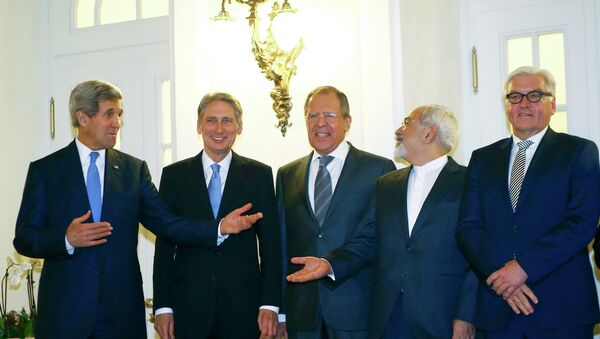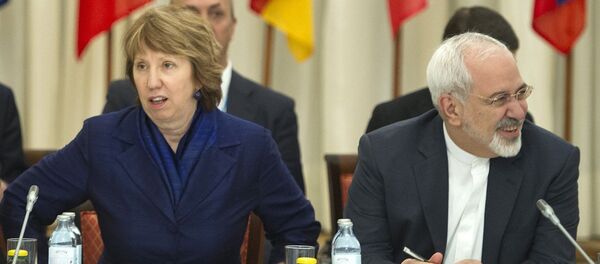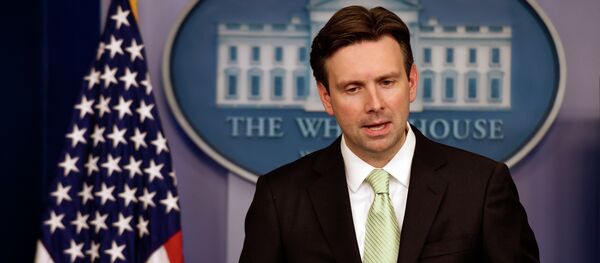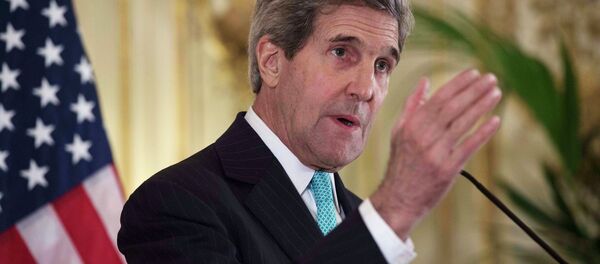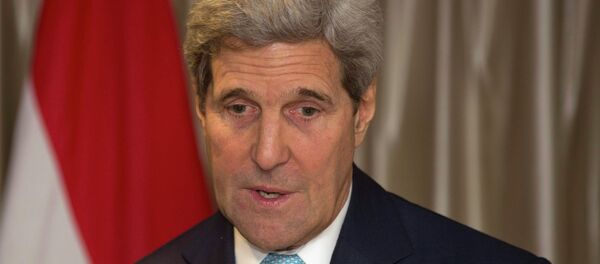WASHINGTON, November 25 (Sputnik) – In the wake of US Secretary of State John Kerry's announcement that nuclear talks between the P5+1 and Iran would be extended to the end of June 2015, US Republicans said Washington needed to impose harsher sanctions on Tehran to deter it from pursuing a nuclear weapon, a call that Democrats have already criticized as counter-productive.
US President Barack Obama's position on increasing sanctions on Iran differs sharply with Rubio's, based on comments made by White House spokesperson Josh Earnest at Monday's press briefing.
Democratic Senator Carl Levin, chairman of the Senate Armed Services Committee, has supported extending negotiations because the interim agreement has been effective while a comprehensive deal was in sight.
While it is true that Iran was only brought to the negotiating table due to pressure, the current level of sanctions has not changed its behavior, Republican Senator Rubio explained.
"The Iranian regime's track record as the world's foremost state sponsor of terrorism and an abuser of the Iranian people has not changed. From the outcome of this latest round, it also appears that Iran's leadership remains unwilling to give up their nuclear ambitions," he said.
Senator Bob Corker, ranking member of the Senate Foreign Relations Committee, seemed to strike a balance between Rubio and Levin's positions.
"Since the beginning, I have been concerned about a series of rolling extensions becoming the norm and reducing our leverage. However, I would rather the administration continue to negotiate than agree to a bad deal that would only create more instability in the region and around the world," Corker said.
Congress must be able to weigh-in before the implementation of any deal and should develop alternatives, including tougher sanctions, should negotiations ultimately fall apart, Corker added.
On November 18, the P5+1 group arrived in Vienna, hoping to negotiate a deal that would prevent Iran from developing nuclear weapons in exchange for the relaxing of economic sanctions.

